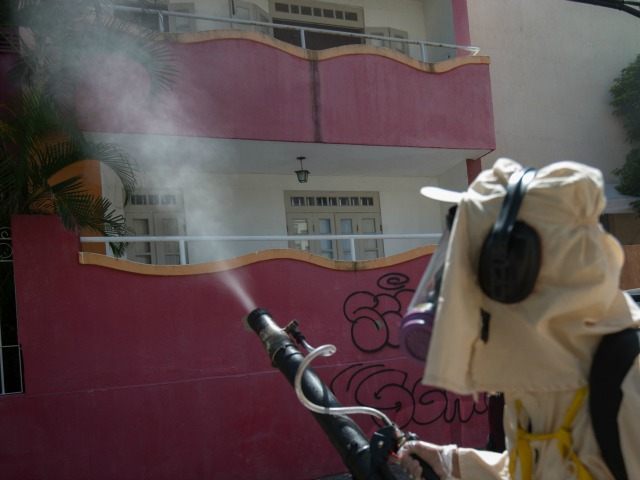African disease control experts have offered to help Latin America combat the increasingly rapid spread of Zika virus across the Western Hemisphere. While Zika is not a threat in Africa, scientists working to combat Ebola there in the past two years hope to use methods successful against Ebola to prevent similar devastation in South America.
Deutsche Welle reports that a team of six researchers from Senegal has landed in Brazil, looking to adapt their mobile Ebola diagnostic kit for Zika, so Brazilian authorities can more rapidly identify cases of Zika through door-to-door inspections.
“Ebola taught us that it is possible to detect the beginning of an epidemic, but not to foresee its end,” Dr. Amadou Alpha Sall, the head of the Senegalese team from the Pasteur Institute in Dakar said. His Ebola kit can identify the presence of the virus within 15 minutes, and runs on solar power, making it significantly more mobile for harder-to-reach communities. While Dr. Sall notes that merely identifying the virus will not stop its spread, “if you can’t identify the virus, you will have no way of telling whether the epidemic is advancing, stabilizing or ebbing.”
Dr. Sall’s team is working in Recife, Brazil, where medical experts are predicting that up to 100,000 people have come into contact with Zika in the past year. They do not have any way of knowing yet how many of these have actually contracted the virus.
The African teams most likely to be helpful in the fight against Zika are in West Africa, where the Ebola outbreak broke out in February 2014. Ironically, they are not in Uganda, where the Zika forest gave the virus its name. While this was the first place scientists isolated the virus in the 1940s, the BBC notes that only two cases of Zika have been documented there in the past 70 years.
Experts hope to study the virus’s native lands, anyway, as some suspect the extremely low number of diagnosed cases does not mean the number of cases is actually low. “It is possible that there could be several people, or so many people out there with the Zika virus infection, but because many people do not seek treatment in the hospitals, we could be missing out,” Dr. John Kayuma, who works in Uganda, told BBC.
Experts consider Africa’s critical lack of medical infrastructure – and African societies’ reliance on traditional herbalist healers over Western-style doctors – major factors in how Ebola managed to spread to more than 11,000 people in less than two years. Initially, many denied the existence of Ebola, while others believed it was a Western plot to control regional populations.
Such a threat is significantly diminished in the developed countries of Latin America. Zika brings its own threat, however, in how difficult symptoms are to identify. Up to 80 percent of those carrying the Zika virus have no symptoms at all. Those who do have symptoms report body aches, conjunctivitis, and other mild symptoms that typically disappear within a week. Zika poses a major threat only to unborn fetuses, as doctors in Brazil have identified a link between a pregnant mother carrying Zika and her child being born with microcephaly, a severe neurological deformity in which the infant’s brain is larger than his or her skull. Most pregnant women with Zika will not have significant symptoms, making it difficult to trace whether the child will be hurt.
Brazil has identified 4,000 cases of infants with microcephaly related to Zika virus. The virus is expected to spread to all nations where its carrier, the mosquito Aedes aegypti, lives, including all nations in the Western Hemisphere except Canada and Chile.

COMMENTS
Please let us know if you're having issues with commenting.